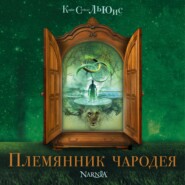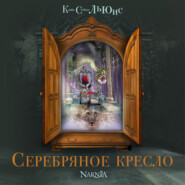По всем вопросам обращайтесь на: info@litportal.ru
(©) 2003-2025.
✖
Collected Letters Volume Two: Books, Broadcasts and War, 1931–1949
Настройки чтения
Размер шрифта
Высота строк
Поля
(#ulink_0142f461-3180-549d-a406-e0de8affe02d) in 1912. What do you make of that? Can it date from the Franco Prussian war? Or is it a German student song made in anticipation of Der Tag about 1910? The latter would be an interesting fact for the historian. I never heard the ballad as a whole, but think it is poor—in tact, nasty. Bawdy ought to be outrageous and extravagant like the piece quoted. It can, of course, be funny through sheer indefensible insolence, like the following (to the tune of ‘Here we go gathering nuts in May’)
The Dean of Balliol sleeps with menSleeps with men, sleeps with men.The Dean of Balliol sleeps with menTill three o’clock in the morning.
But any parts I have ever heard of the ‘German Officer’ relate quite possible happenings that have really nothing funny about them. Again, bawdy must have nothing cruel about it, like ‘Old Mother Riley’: it must not approach anywhere near the pornographic like the poem in which every line begins ‘A little’. Within these limits I think it is a good and wholesome genre: though I can’t help feeling sorry that it should be the only living folk-art left to us. If our English binge had been held in a mediaeval university we should have had, mixed with the bawdy songs, tragical and even devotional pieces, equally authorless and handed on from mouth to mouth in the same way, with the same individual variations.
I go to Cambridge on New Years Eve for a couple of day’s awarding, not this time to be lodged in Queen’s but in the University Arms: with—would you believe it—the same carte blanche. So, at least, I gather from Hugh-Jones of Keble,
(#ulink_73dfabe8-5cfa-58f1-a5f4-219be81c1268) who stayed there on the same job some years ago and wondered till the last night, when he discovered (almost but not quite too late) the explanation—wondered at the lavish orders of his colleagues and concluded them all to be rich men.
This same Hugh-Jones has been one of my disappointments. I met him in Cambridge at the Award last year: we discovered a common enthusiasm for Shaw and Chesterton and just an interesting amount of disagreement on the subjects they led on to: sat till after midnight: and parted with a strong desire to continue the acquaintance. A few weeks ago he asked me to dine, not in Keble but at his house. That was the first shock—married! I arrived and got the second shock—not only a wife present, but a sister in law—an Anglo-Indian sister in law. Still I consoled myself with the expectation that he would carry me off to his study after dinner for some talk. Not a bit of it. Not even a temporary separation from the ladies over our wine. He had asked me, apparently, to sit solidly with his wife and sister in law till ten o’clock when I could endure it no longer and went.
The sister in law was the sort of woman who, when the talk drifted towards education, remarked that it was astonishing how badly children were taught now a days: she had met a boy of fourteen who didn’t know the principal export of Burma. ‘He thought it was fruit’ she said, and laid down her needles and gazed at me. In fact I was like Lamb, left alone with his sensible, well-informed man. (I could have told her the chief export of Anglo-India all right). The wife was not so bad, and I had seen her a few days before acting the part of the maid in Tartuffe (in English)
(#ulink_665f847a-b804-59f1-bf81-3516ff669f61) given by the Magdalen dramatic society. She had ‘done very well’ wh. is surprising, for my pupil Lings (I think you met him) who was producer, as well as playing Organ, had given me an amusing account of her behaviour at rehearsals. In his scene with her he had a speech ending ‘His only care is religion,’
(#ulink_acf0abf5-1fc6-5dd8-b5dd-0b776643bfdd) which he inadvertently altered to ‘Religion is his only care.’ After a long pause she said dreamily ‘Are you waiting for me? I haven’t got to say my speech until you get to “is religion”, you know.’
Tartuffe was really excellently done. I had neither read nor seen it before and enjoyed it thoroughly. To a reader I daresay the savagery is the most striking thing, but on the stage it made me laugh ‘consumedly’. The final scene between Organ and his wife is as funny as anything I know (‘But I tell you, Mother, I saw him with my own eyes. I saw the rascal embracing my wife’—‘Ah, my son, beware of tale-bearers. Without doubt the worthy man has been slandered’—‘I shall go mad! I saw it myself’—‘Ah tongues will wag, to be sure’ etc.) A most maddening type of female P’dayta. By the way doesn’t Tartuffe, specially in the opening scenes, bring out very strongly that Latin dominance of the familia which you have often spoken of?—except that in Tartuffe’s household it is not so much patria potestas as materna potestas: which possibly is very French too.
It is now after tea and I have put in a very tolerable afternoon’s walk on the nettles and brambles. A civil gamekeepery kind of man walked up on the Philips side of the boundary—I think he lives in the other house on Philips land—and had a chat about trees.
(#ulink_28cfe3f5-41d2-5cda-8645-d6e4838db970) He knows the place very well having originally ploughed up what is now the grass platform before the top wood when Mrs Goodman got rid of the hawthorns. I regretted the loss of the hawthorns less when this man told me that before he ploughed it that part was a mass of undergrowth so that you couldn’t walk through it. I was not so pleased to learn that our new holly is, after all our instructions to Suttons, the bush type and not the tree. He promised to find out for me the real name of the tree kind, which he will be able to do as one of his employers is a Forestry tutor. He also remarked that elder and bramble are the two strongest growing things there are and that, left a free field, each will defeat everything except the other.
It was a foggy afternoon, but very warm: really springlike early this morning as I went to ‘the early celebbbrrration’.
(#ulink_5124a108-d130-569b-b399-ae6b90360e0d) We had a poorish discourse from Thomas at Matins, but otherwise he has been keeping his end up very well. In one sermon on foreign missions lately he gave an ingenious turn to an old objection. ‘Many of us’ he said ‘have friends who used to live abroad, and had a native Christian as a cook who was unsatisfactory. Well, after all there are a great many unsatisfactory Christians in England too. In fact I’m one myself.’ Another interesting point (in a different sermon) was that we should be glad that the early Christians expected the second coming and the end of the world quite soon: for if they had known that they were founding an organisation for centuries they would certainly have organised it to death: believing that they were merely making provisional arrangements for a year or so, they left it free to live.
How odd it is to turn from Thomas to F.K.
(#ulink_157d9188-3f9e-5273-b9e2-e1978ad4cf9a) He really surpassed himself the other day when he said that he objected to the early chapters of St Luke (the Annunciation particularly) on the ground that they were—indelicate. This leaves one gasping. One goes on reacting against the conventional modern reaction against nineteenth century prudery, and then suddenly one is held up by a thing like this, and almost pardons all the followers of Lytton Strachey. If you turn up the passage in St Luke the thing becomes even more grotesque. The Middle Ages had a different way with these things. Did I tell you that in one of the Miracle Plays, Joseph is introduced as a typical comic jealous husband, and enters saying ‘This is what comes of marrying a young woman.’
F.K., however, gave me a treat last week by showing a treasure which I never would have guessed that he had—a letter in Johnson’s own hand to Mrs Thrale. He talks of giving it to Pembroke but as he has had it for many years I guess that he will never part with it.
(#ulink_f7a54a0d-e001-53b8-b1b0-0982d52ed4f1)
Minto has probably told you that we are at present revelling in the unaccustomed luxury of a good maid. (What an ambiguous sentence!) You will hardly imagine the Kilns under the regime of a maid who not only can cook (that is odd enough) but who is actually allowed to cook by Minto—a state of affairs I had long since given up hoping for. Esto perpetua!
As I said at the outset I have been able to read very little: and nothing in your line. The Somnium Scipionis
(#ulink_169a740f-cae2-5335-9230-5287a7285189) is worth mentioning only because the handiest edition I could get was a school edition, & it was rather delightful to renew ones acquaintance with that highly specialised form of composition-a preface to a school text. You know. ‘Plato, the celebrated Gk. philosopher (500–400 B.C.) thought—’ and then a clear, dogmatic, and misleading sentence. No half lights.
Wuthering Heights
(#ulink_9148dc3b-c0b1-5ea7-8c74-69a5a4ee6bf8) which I re-read the other day is, I believe, one of your biblia abiblia.
(#ulink_db6ca94a-a1ef-5387-af77-9d1a5eba2309) I should not like to make it my constant fare, but I still like it very much. R. Macaulay’s Mystery at Geneva
(#ulink_c8223db0-bb06-59f6-9cac-d2cee177931c) I also re-read recently: much the poorest she has written, and a mere repetition of all her favourite tricks. I feel P’daytesque and ask ‘Will she live?’
I have bought The Brothers Karamazov
(#ulink_93f79755-4aa7-56b0-ba01-360fb1963c2c) but not yet read it with the exception of some special detachable pieces (of which there are many). Thus read, it is certainly a great religious and poetical work: whether, as a whole, it will turn out a good, or even a tolerable novel I don’t know. I have not forgotten your admirable Russian novel ‘Alexey Poldorovna lived on a hill. He cried a great deal.’
It is pleasant to reflect that one of the nine terms of your exile is now over.
Yrs
Jack
1 (#ulink_3506bb68-81ea-56a5-8a90-901f74d15d45) The Rev. Wilfrid Savage Thomas (1879–1959) took a BA from Pembroke College, Cambridge, in 1900. Ordained in 1903 after a year at Wells Theological College, he was Curate of Great Marlow until 1906 and spent the next two years in Australia as Domestic Chaplain to the Bishop of Adelaide. He returned to Great Marlow, 1909–11, and was assigned Banbury with Grimsbury, 1911–13. After a further spell in Australia in 1915 as priest-in-charge of Mallala Mission, he was Curate of Amersham, 1916–18, Vicar of Holy Trinity, Lambeth, and Chaplain of St Thomas’s Hospital, London, 1918–23. Thomas became Vicar of Holy Trinity, Headington Quarry, in 1924 and remained there until 1935. He was subsequently Vicar of Adderbury with Milton, 1935–9.
2 (#ulink_3506bb68-81ea-56a5-8a90-901f74d15d45) The grounds of The Kilns covered nine acres, and the Lewis brothers began planting trees and clearing pathways immediately after moving there.
3 (#ulink_3506bb68-81ea-56a5-8a90-901f74d15d45) The Rev. Edward Foord-Kelcey (1859–1934) matriculated at Pembroke College, Oxford, in 1884. He read Theology at Cuddesdon College and was ordained in 1888. He was Curate of St Saviour, Leicester, 1887–92, Vicar of Quorn (or Quorndon), Leicestershire, 1892–1909, and Rector of Great Kimble, Buckinghamshire, 1909–26. He officiated in the Diocese of Oxford from 1927 until his death. His wife died shortly before the First World War. In a short biography of Foord-Kelcey (LP XI: 24–5), Lewis wrote; ‘A common love of Scott and Johnson was the ground on which we met…These, with Shakespeare and Carlyle, were the constant themes of his talk… As a man of letters his range was not very wide—of poetry, for example, he knew little—nor was his judgement above the ordinary: but he was always worth listening to for the intensity of his gusto, and his chuckles and ecstatic repetition.’
4 (#ulink_2f579992-c14a-55c8-b095-95c435bce445) There had been a footpath running across a field from Headington to Headington Quarry since 1804. The Oxford City Corporation wished to divert it, but many people who had been using the footpath for the whole of their lives, including Mr J. Snow, managed to have the City’s plan altered. See the letter from Mr Thomas, ‘Closing the Quarry Field Footpath’ in the Oxford Times (7 August 1931), p. 10.
5 (#ulink_2992ac58-036c-5295-943e-7a4b8ef7de60) Maureen Moore, the daughter of Janie King Moore, taught music at the Monmouth School for Girls, Monmouthshire, 1930–3. See Dame Maureen Dunbar of Hempriggs (1906–97) in the Biographical Appendix to CL I.
6 (#ulink_2992ac58-036c-5295-943e-7a4b8ef7de60) The nickname of Mrs Janie King Moore (1872–1951). See the Biographical Appendix to CL I.
7 (#ulink_c5ff00cf-ca08-5349-8321-7b148273b5c9) George Robert Sabine Snow (1897–1969) was a Fellow of Magdalen College, 1922–60.
8 (#ulink_c5ff00cf-ca08-5349-8321-7b148273b5c9) James Boswell, The Life of Samuel Johnson, ed. George Birkbeck Hill, 6 vols. (1934), 18 April 1783, vol. IV, p. 205. slightly misquoted.
9 (#ulink_f746f939-322a-58d7-8912-e966c29ee191) Jeremy Taylor, The Whole Works…With a Life of the Author, and a Critical Examination of His Writings, by Reginald Heber, 15 vols. (1822).
10 (#ulink_f746f939-322a-58d7-8912-e966c29ee191) See Dom Bede Griffiths in the Biographical Appendix. Alan Richard Griffiths became a Catholic on Christmas Eve 1932. He spent much of the following year at Prinknash, the Benedictine priory near Gloucester, testing his vocation as a monk. On 20 December 1933 he was clothed as a novice and took the name Dom Bede Griffiths.
11 (#ulink_f746f939-322a-58d7-8912-e966c29ee191) For the biography of Frank Sanders see note 28 to the letter of 22 March 1941.
12 (#ulink_10e9542c-3822-5063-a53a-3556f4e24775) William Law, A Serious Call to a Devout and Holy Life (1728).
13 (#ulink_237cf8d7-184e-513a-8d9d-53cc8e057498) Major Herbert Denis Parkin (1886–1958) joined the army in 1908 and the Army Service Corps (later Royal Army Service Corps) in 1911. He became captain in 1915 and major in 1918. He served in France during the First World War, in India during 1922, and Egypt, 1927–8. Major Parkin was Warnie’s commanding officer in Shanghai, 1928–9 and they became lifelong friends, but this was the first time Jack had met him. On learning of Parkin’s death, Warnie wrote in his diary of 13 November 1958: ‘He was a friend of almost thirty years standing, and one whose place no one can fill…We shared a stock of memories which were very precious to both of us, and he had a humour that was entirely his own…I shall miss him to the end—the only real friend I ever made in me army’ (BF, p. 246).
14 (#ulink_237cf8d7-184e-513a-8d9d-53cc8e057498) John Trail! Christie (1899–1980) was Fellow and Classical Tutor at Magdalen College, 1928–32, Headmaster of Repton School, 1932–7, Headmaster of Westminster School. 1937–49. and Principal of Jesus College, Oxford, 1950–67.
15 (#ulink_8d5e3061-e01d-5b41-aa1f-27a2f7ca0693) Sir Thomas Browne (1605–82), natural historian, antiquary, and moralist, best known for his Religio Medici (1642).
16 (#ulink_8d5e3061-e01d-5b41-aa1f-27a2f7ca0693) i.e. like Charles Lamb.
17 (#ulink_d031ae76-517f-5ab5-8464-0265fa482e06) Mr Papworth, or Baron Papworth as he was also known, was Lewis’s and Mrs Moore’s dog. Of the many pets they had over the years, he was their favourite. He died in 1937.
18 (#ulink_d031ae76-517f-5ab5-8464-0265fa482e06) ‘I love games, love, books, music.’ From Jean de La Fontaine, Les Amours de Psyché et de Cupidon (1669), quoted in The Oxford Book of French Verse, ed. St John Lucas (1920), p. 182.
19 (#ulink_7e8f8451-247d-5a7a-85ca-6596c3029507) René Descartes (1596–1650) was the chief architect of the seventeenth-century intellectual revolution. His philosophical masterpiece, Meditations on First Philosophy (1641) contains many of his proofs of the existence of God.
20 (#ulink_7e8f8451-247d-5a7a-85ca-6596c3029507) See Alfred Cecil Harwood (1898–1975) in the Biographical Appendix to CL I. After taking his BA from Oxford in 1921 he became a teacher at Michael Hall School in London.

















